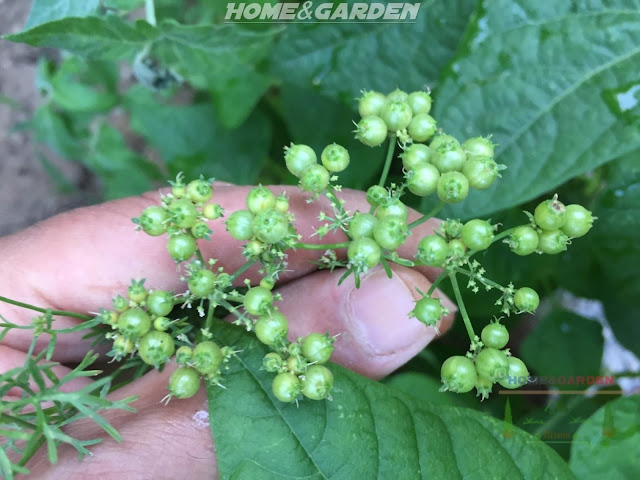Coriander (Coriandrum Sativum) is an annual herb that belongs to the carrot family. Coriander has a very long history in Southern Europe, the Middle East and the Far East. All parts of this plant are used in cooking. The leaves, known as Cilantro, are used in Middle Eastern and Mexican cooking; the roots are used in Thai recipes and the seeds are used both in their whole, cracked form or ground form. Coriander has delicate light green leaves that look like flat parsley. Coriander is one of the bitter herbs eaten during Passover and Corriander Seeds have been found in the tombs from Ancient Egypt. The leaves, Cilantro, have a faint over tone of Anise. The seeds are reminiscent of Orange Peel and is the portion referred to as Coriander. The cracked and ground seeds are essential ingredients in curries. Coriander is a common ingredient in Indian Spice Blends and often used in Middle Eastern lamb and beef stews.
Coriander Seeds are known in various names around the world such as Dhania, Dhaniya, Chinese parsley. Coriander seeds are the dried fruits of coriander plant. The seeds have a citrus lemon flavor when crushed, but they can be used whole or ground. Coriander is typically used in Asian and European cuisine.
Coriander seeds health benefits
Coriander seeds have a health-supporting reputation that is high on the list of the healing spices. In parts of Europe, coriander has traditionally been referred to as an "anti-diabetic" plant. In parts of India, it has traditionally been used for its anti-inflammatory properties. In the United States, coriander has recently been studied for its cholesterol-lowering effects.
Some of the links to products on this site are affiliate links. I do make a small commission (at no extra cost to you) from these sales




